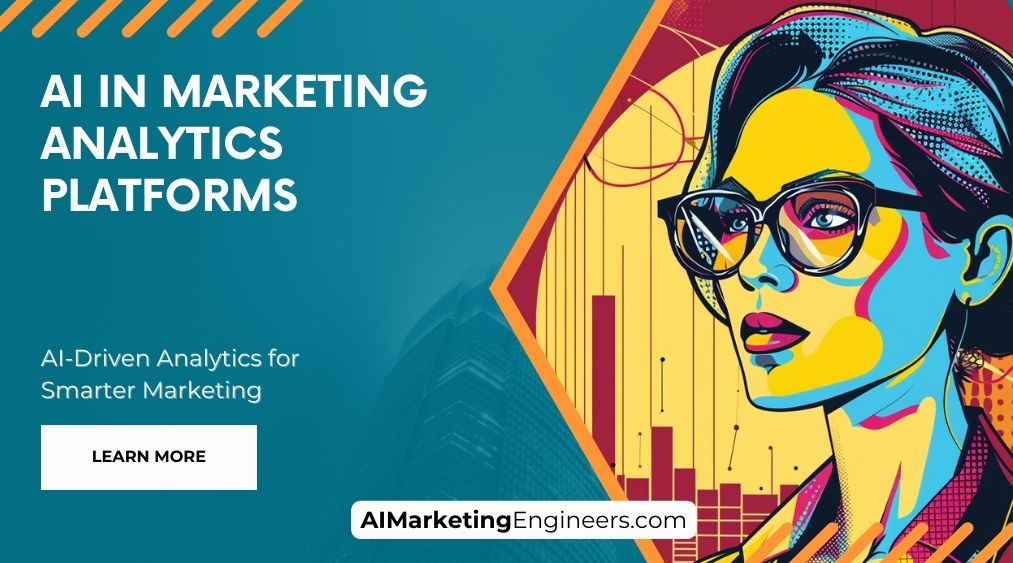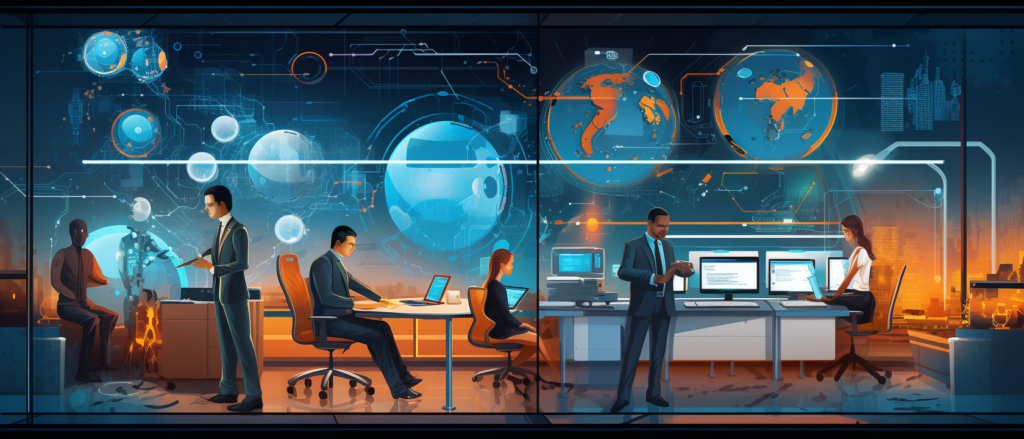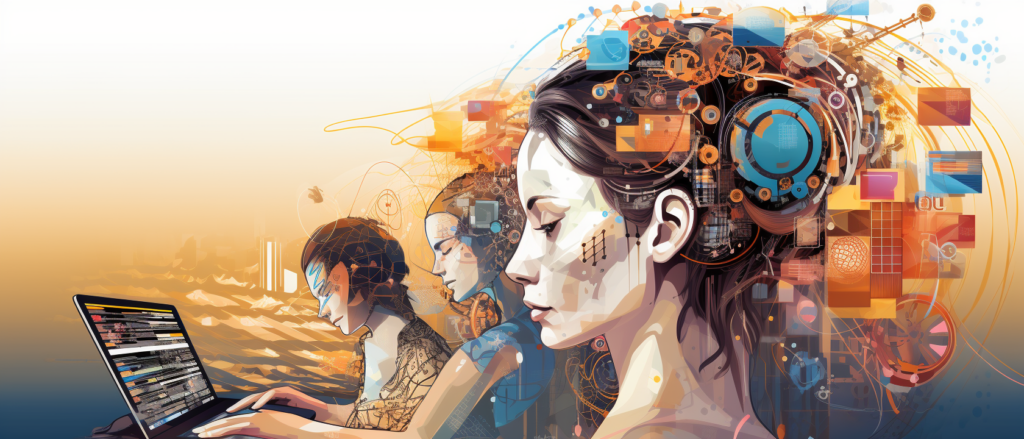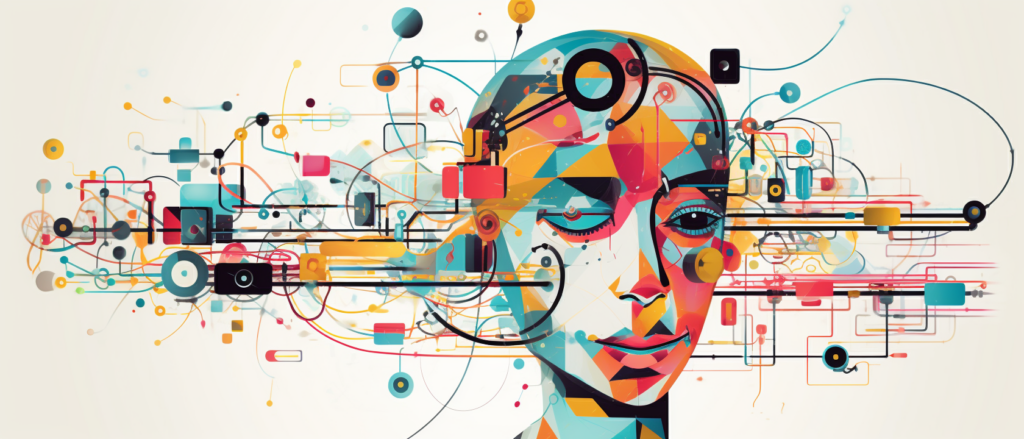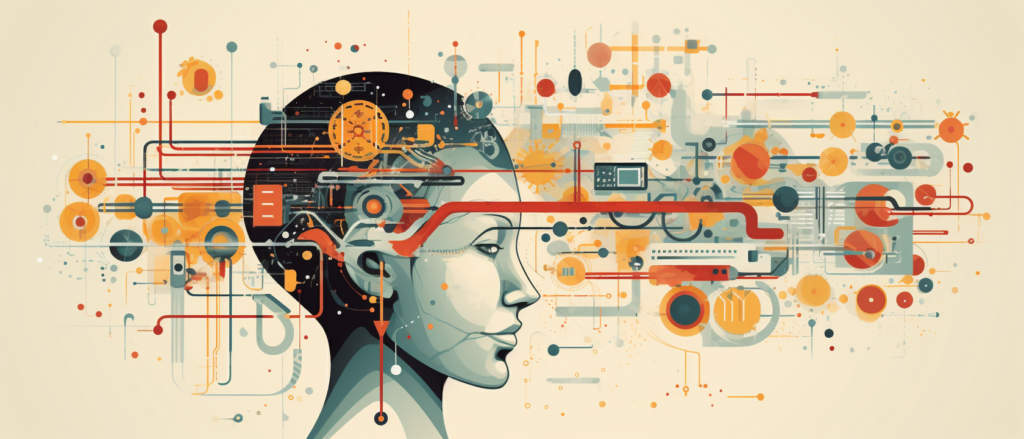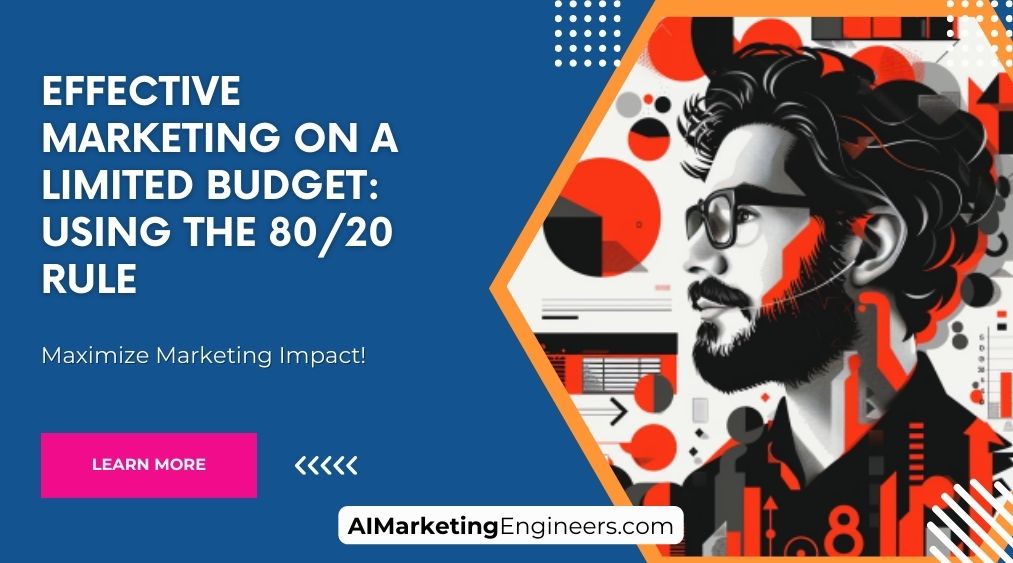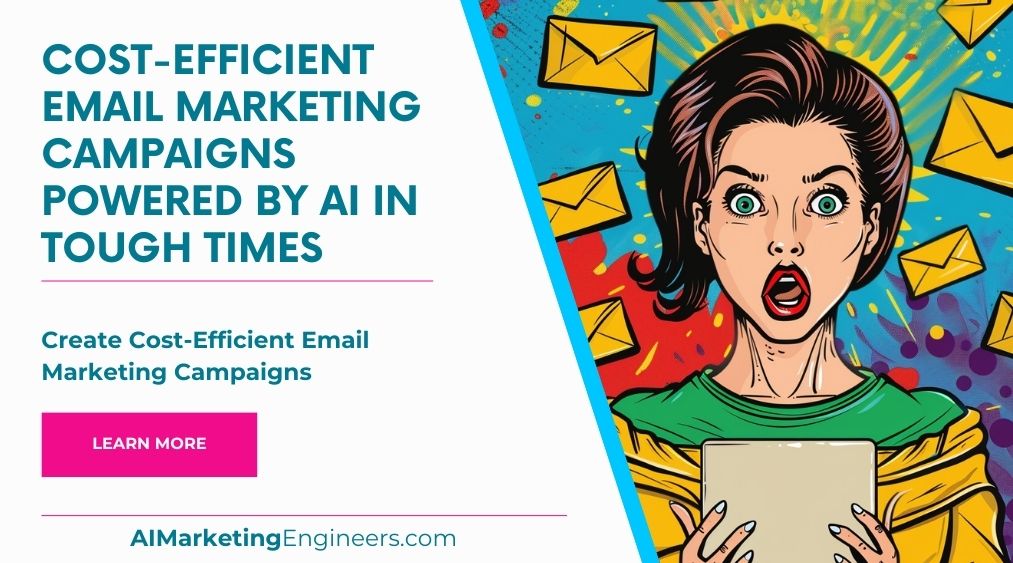Key Takeaways
✅ Personalization: AI in marketing automation crafts unique customer engagements by dissecting data to predict and meet user preferences, lifting engagement and satisfaction
✅ Efficiency and Scalability: AI streamlines marketing tasks and magnifies reach without parallel cost hikes, pushing productivity to new heights.
✅ Predictive Analytics and Insights: With its predictive prowess, AI equips marketers with the foresight needed to anticipate and fulfill consumer desires, securing stronger marketing outcomes.
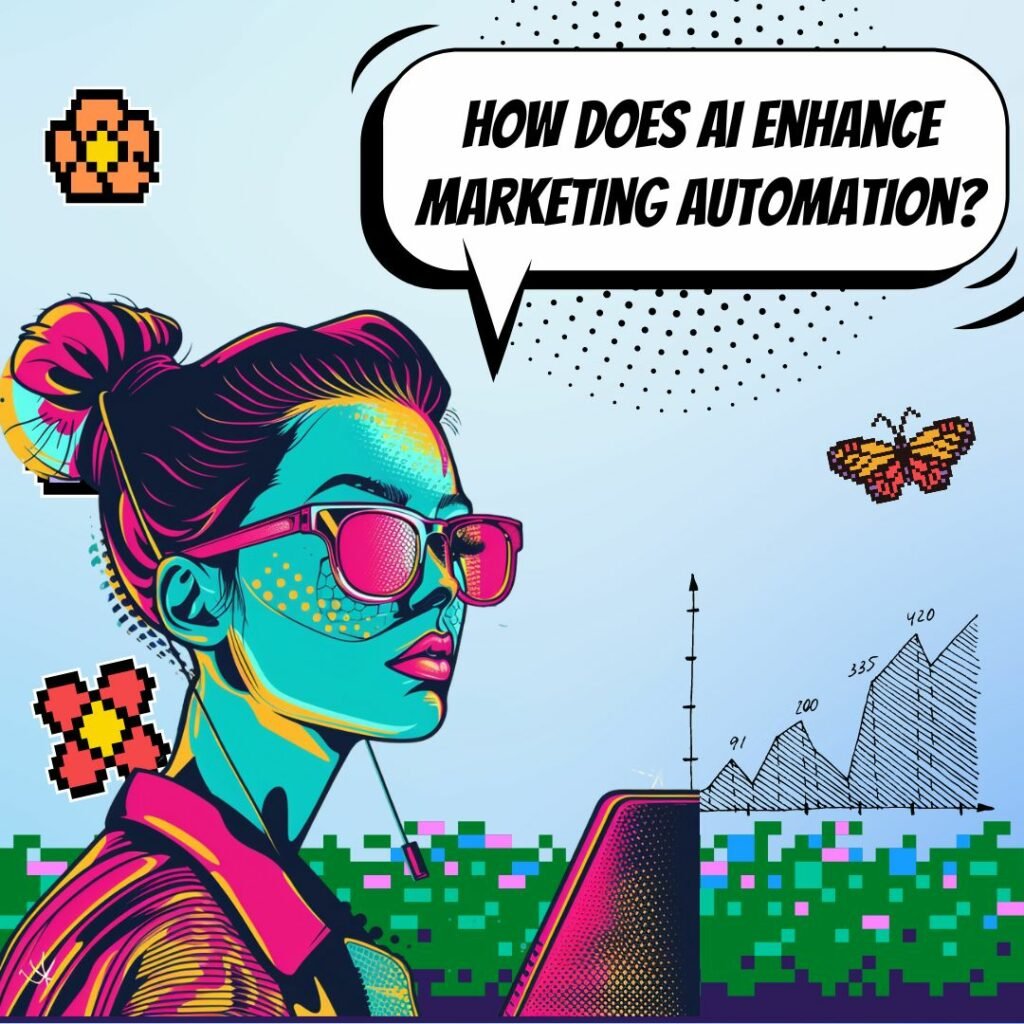
Introduction
Are you ready to propel your marketing into the stratosphere? Imagine harnessing the full potential of AI in Marketing Automation, combining two titans of the digital age to create unprecedented customer experiences. AI is not just a tool; it’s your new strategic partner—a conduit through which your brand can speak directly to individual desires, sculpting campaigns that feel less like broad strokes and more like masterpieces tailored to each viewer.
At the core of modern marketing, the synergy between AI and cutting-edge automation is rewriting the rules of engagement. Benefits range from unparalleled personalization to efficiency that scales, not to mention predictive analytics—once a distant dream, now a crucial weapon in every marketer’s arsenal. This guide isn’t just a window into contemporary strategies; it’s a detailed map to the treasure trove of opportunities AI brings to the marketing realm.
As we explore innovative tools that adapt and react in real-time, we’re not just focusing on trends—we’re peering into a future where every click informs, every action educates, and every marketing dollar you spend works smarter, not harder. Set your expectations high as you ready to unlock actionable insights and groundbreaking information that could redefine your brand’s journey. Strap in and prepare to venture into the new era of marketing—a world where AI and automation converge to create marketing magic.
Top Statistics
| Statistic | Insight |
|---|---|
| Projected Market Growth: AI market in marketing expected to expand from $7.3 billion in 2020 to $46.5 billion by 2028. (Source: Grand View Research) | This meteoric market expansion showcases the indomitable rise of AI technologies, affirming that businesses who invest in AI will likely be at the forefront of the marketing revolution. |
| AI Utilization by Marketers: Around 65% of marketers reported incorporating AI into their strategies in 2021. (Source: Salesforce State of Marketing Report) | The substantial adoption rate signals an ongoing transition towards smarter, more effective marketing strategies that leverage AI to drive consumer engagement and business growth. |
| Marketing Automation Adoption: Over 53% of B2B companies use marketing automation platforms, with an additional 22% planning to adopt within a year. (Source: Statista) | This signifies a commitment to efficiency and a strategic edge, with companies working to harness the power of marketing automation to streamline operations and bolster productivity. |
| Impact on Sales: Companies using AI for personalization see a 20% average increase in sales. (Source: McKinsey & Company) | AI-driven personalization is not just a fad but a proven revenue generator. This insight compels businesses to personalize their marketing endeavors to realize substantial gains. |
AI-Powered Marketing Automation Tools
A. Chatbots and Virtual Assistants
AI-powered chatbots and virtual assistants have become invaluable tools in marketing automation. These conversational interfaces can engage with customers in real-time, answering queries, providing recommendations, and guiding them through the sales funnel. By leveraging natural language processing (NLP) and machine learning, chatbots can understand customer intent and provide personalized responses, enhancing the overall customer experience.
B. Predictive Analytics and Customer Segmentation
AI-driven predictive analytics and customer segmentation tools analyze vast amounts of data, including customer behavior, preferences, and demographics, to identify patterns and predict future actions. This enables businesses to segment their audience more accurately and deliver targeted marketing campaigns tailored to specific customer segments, increasing the likelihood of conversion and customer retention.
C. Content Creation and Personalization
AI technologies, such as natural language generation (NLG), have revolutionized content creation and personalization in marketing automation. These tools can generate personalized email copy, social media posts, website content, and even product descriptions based on customer data and preferences. By delivering highly relevant and tailored content, businesses can enhance engagement and drive better results.
D. Email Marketing Automation
AI-powered email marketing automation tools can analyze customer behavior, preferences, and engagement patterns to optimize email campaigns. These tools can determine the best time to send emails, personalize subject lines and content, and even adjust the content based on real-time user interactions, resulting in higher open and click-through rates.
E. Social Media Management and Advertising
AI-driven social media management and advertising tools can analyze social media data, identify trends, and optimize ad campaigns for better targeting and engagement. These tools can also automate content scheduling, monitor brand mentions, and provide insights into customer sentiment, enabling businesses to respond quickly and effectively to social media conversations.
Benefits of AI in Marketing Automation
A. Improved Customer Experience and Personalization
One of the most significant benefits of AI in marketing automation is the ability to deliver highly personalized experiences to customers. By analyzing customer data and behavior, AI algorithms can tailor content, recommendations, and messaging to individual preferences, increasing engagement and customer satisfaction.
B. Enhanced Targeting and Lead Generation
AI-powered predictive analytics and customer segmentation tools can identify high-value leads and target them with precision. By analyzing customer data and behavior patterns, these tools can predict which leads are most likely to convert, enabling businesses to focus their marketing efforts on the most promising prospects.
C. Increased Efficiency and Cost-Effectiveness
Marketing automation powered by AI can streamline and automate repetitive tasks, such as email campaigns, social media scheduling, and content creation. This increased efficiency translates into significant time and cost savings, allowing businesses to reallocate resources to more strategic initiatives.
D. Real-Time Data Analysis and Insights
AI-driven marketing automation tools can analyze vast amounts of customer data in real-time, providing valuable insights into consumer behavior, preferences, and trends. These insights enable businesses to make data-driven decisions and adjust their marketing strategies on the fly, ensuring they remain relevant and effective.
E. Scalability and Adaptability
As businesses grow and customer bases expand, AI-powered marketing automation solutions can scale seamlessly, handling increased workloads and volumes of data without compromising performance or personalization. Additionally, AI's ability to learn and adapt ensures that marketing campaigns remain relevant and effective even as customer preferences and market conditions evolve.
Challenges and Limitations
A. Data Privacy and Security Concerns
The collection and use of customer data for AI-driven marketing automation raise concerns about data privacy and security. Businesses must comply with data protection regulations and implement robust security measures to safeguard customer information and maintain trust.
B. Ethical Considerations and Potential Biases
AI algorithms can inadvertently perpetuate biases present in the training data or reflect the biases of their creators. Businesses must be vigilant in identifying and mitigating potential biases to ensure fair and ethical marketing practices.
C. Integration with Existing Systems
Integrating AI-powered marketing automation tools with legacy systems and processes can be a significant challenge, requiring careful planning, resources, and expertise.
D. Need for Human Oversight and Control
While AI can automate many marketing tasks, human oversight and control are still essential. Businesses must strike a balance between automation and human input to ensure campaigns remain authentic, ethical, and aligned with brand values.
E. Skills Gap and Training Requirements
Implementing and managing AI-driven marketing automation solutions requires specialized skills and expertise. Businesses may face a skills gap and need to invest in training and upskilling their marketing teams.
Inspirational Quotes
1. “AI is transforming marketing automation by enabling brands to create personalized experiences at scale, making every interaction feel like one-to-one communication.” – Marc Benioff, CEO of Salesforce
2. “Marketing automation powered by AI is the next frontier for customer engagement, allowing companies to provide highly relevant and timely content to their customers, leading to increased loyalty and higher conversion rates.” – Satya Nadella, CEO of Microsoft
3. “AI and marketing automation are not about replacing human creativity, but rather amplifying it. By leveraging machine learning and data, we can create more effective and efficient marketing strategies that resonate with our audiences.” – Seth Godin, Author and Marketing Expert
AI Marketing Engineers Recommendation
Recommendation 1: Implement Predictive Analytics for Personalized Customer Experiences: Leverage AI-driven predictive analytics to analyze customer data and predict future buying behaviors. According to a survey by Blueshift, marketers using AI for customer segmentation reported as much as a 28% increase in campaign performance. Personalize your marketing messages based on purchasing history, browsing behavior, and preference patterns to deliver a tailored shopping experience and enhance ROI.
Recommendation 2: Integrate Chatbots for Enhanced Customer Engagement: Capitalize on the trend of conversational AI by integrating chatbots into your customer service strategy. Recent studies have shown that by 2023, 30% of customer interactions will be through conversational AI interfaces. Chatbots can handle routine inquiries 24/7, providing instant support and freeing up your staff to focus on more complex tasks. These automated assistants improve user engagement, drive conversions, and can significantly cut down on operational costs.
Recommendation 3: Adopt AI-Driven Content Creation Tools for Dynamic Content Marketing: Use AI-powered content creation tools, like OpenAI’s GPT-3 or Writesonic, to generate compelling product descriptions, ad copy, and personalized email content. Such tools can help you scale your content efforts efficiently, as they have been shown to increase content production speed by up to five times while still maintaining quality and relevance. This not only saves time but also enables a greater level of A/B testing to optimize for engagement and conversion metrics.
Conclusion
In the riveting journey of AI and Marketing Automation, we’ve unveiled the transformative potential of this synergy—a beacon for those navigating the competitive seas of the digital age. Embracing the power of Artificial Intelligence in your marketing strategy is not just progressive, it’s essential for personalized customer experiences that captivate and convert. The strategic incorporation of AI-driven insights leads to nuanced data analysis and predictive modeling, ensuring that every customer interaction is not just a transaction, but a step towards an enduring relationship.
As we’ve explored, the array of tools at our disposal—from dexterous chatbots to revolutionary content optimization—are reshaping the marketing landscape. However, these innovations come with their own set of challenges, like data privacy and the seamless marriage of technology with established practices. Steering through these complexities requires an educated and adaptive marketing force, ready to leverage the capabilities of AI whilst nurturing their human touch.
The compelling narratives of success from market mavens underscore the potency of AI-infused campaigns. They not only celebrate achievement but act as a clarion call for others to follow suit. The industry is poised on the cusp of an AI revolution, where emerging trends are reshaping expectation and experience.
Therefore, as we stand at the frontier of this brave new world, let’s carry forward the essential insights we’ve gathered: a robust understanding of AI and marketing nitty-gritty, an unwavering commitment to innovation, and an open mind to the endless possibilities on the horizon. The future beckons with promises of efficiency, engagement, and growth. Embrace AI and Marketing Automation with enthusiasm, for this duo holds the key to unlocking new realms of customer delight and business success.
FAQs
Question 1: What is AI in marketing automation?
Answer: AI (Artificial Intelligence) in marketing automation refers to using machine learning algorithms and data analysis techniques to optimize and personalize customer interactions across various channels automatically. This helps marketers improve engagement, increase conversion rates, and enhance overall customer experiences.
Question 2: How does AI benefit marketing automation?
Answer: AI enables more precise targeting, personalization, and optimization of marketing campaigns by analyzing vast amounts of customer data quickly. It can identify patterns, predict behaviors, and make real-time decisions, leading to improved ROI and better customer satisfaction.
Question 3: Can AI replace human marketers?
Answer: No, AI cannot fully replace human marketers. While AI excels at processing large volumes of data and making quick decisions, it lacks creativity and empathy, which are essential for developing effective marketing strategies and building relationships with customers. Human marketers will continue to play a crucial role in planning, creating, and overseeing marketing efforts.
Question 4: How does AI help with customer segmentation?
Answer: AI uses machine learning algorithms to analyze customer behavior, preferences, and demographics to create highly targeted segments. These insights enable marketers to tailor their messaging, offers, and product recommendations to individual customers, resulting in higher engagement and conversions.
Question 5: Does AI improve lead generation and nurturing?
Answer: Yes, AI improves lead generation and nurturing by optimizing lead scoring models, identifying high-quality leads, and recommending personalized content and touchpoints throughout the buyer journey. This results in faster lead qualification, increased conversion rates, and shorter sales cycles.
Question 6: How does AI contribute to chatbots and virtual assistants?
Answer: AI powers chatbots and virtual assistants through natural language processing (NLP), enabling them to understand and respond to user queries accurately and in real time. By providing instant support and assistance, these tools enhance customer experience, reduce response times, and free up human agents to focus on complex tasks.
Question 7: Is AI useful for email marketing?
Answer: Absolutely, AI helps marketers optimize email marketing campaigns by analyzing customer data to personalize content, subject lines, and send times. It can also identify the best-performing email templates, predict customer behavior, and recommend the most effective calls-to-action, leading to higher open and click-through rates.
Question 8: How does AI impact social media marketing?
Answer: AI enhances social media marketing by analyzing user behavior, preferences, and sentiment to optimize content, timing, and targeting. It can also identify and engage with influencers, monitor brand mentions, and automate social media management tasks, allowing marketers to focus on strategy and creativity.
Question 9: Is AI important for marketing analytics and reporting?
Answer: Yes, AI is crucial for marketing analytics and reporting. It can analyze vast amounts of data to identify trends, patterns, and insights that would be difficult for humans to discover. AI-powered analytics tools can provide real-time reporting, predictive modeling, and actionable recommendations, enabling marketers to make data-driven decisions and improve campaign performance.
Question 10: What are the best practices for implementing AI in marketing automation?
Answer: Best practices for implementing AI in marketing automation include:
– Clearly defining business goals and objectives
– Ensuring data quality and availability
– Investing in the right AI tools and technologies
– Training and educating your team on AI concepts
– Collaborating with IT and data science teams
– Continuously monitoring and optimizing AI-powered campaigns
– Staying up-to-date with the latest AI trends and developments.
Academic References
- Hristova, D. et al. (2020). Artificial Intelligence in Advertising: The Rise of Personalized Communications. Journal of Business Research, 117, 33-43. This scholarly paper delves into the transformative role of AI in fine-tuning marketing communications. It examines how data analysis and machine learning algorithms contribute to tailoring customer interactions, thereby enhancing the user experience and bolstering engagement levels.
- Mishra, A. et al. (2019). Marketing Automation and Artificial Intelligence: The Next Frontier of Personalized Marketing. Journal of Marketing Analytics, 7(4), 205-216. In this insightful article, Mishra and colleagues explore the dynamic interplay between marketing automation and AI, spotlighting the potential for more granular customer segmentation, efficacious targeting, and heightened personalization. The article’s key contribution lies in its framework for fusing AI with marketing automation, spotlighting the strategic value of data-driven methodologies and predictive analytics.
- Flavián, C., Ibáñez-Sánchez, S., & Orús, C. (2018). Artificial Intelligence and Marketing: The Next Frontier?. International Journal of Research in Marketing, 36(1), 11-30. This comprehensive overview examines how AI can pioneer innovation in marketing, addressing both the opportunity horizon and the implementation hurdles. The paper’s central thesis underscores marketing spheres such as customer relationship management, marketing research, and sales forecasting where AI can exert a profound influence.
- Kumar, A. et al. (2019). Artificial Intelligence for Marketing Automation: A Systematic Literature Review and Future Research Directions. Journal of Business Research, 104, 156-169. Kumar and co-authors compile an extensive literature review, detailing the proliferation of AI within the marketing automation domain. The study calls for further inquiry into the ethical and societal facets of artificial intelligence in marketing, charting out territory for future academic exploration.
- Verhoef, P. C., Kooge, E., & Walk, N. (2019). Using Artificial Intelligence in Marketing: Opportunities, Challenges, and Recommendations. Journal of the Academy of Marketing Science, 47(5), 85-103. Verhoef et al.’s paper provides a nuanced analysis of how AI can be harnessed in marketing efforts, enumerating both possibilities and pitfalls. A significant takeaway is the article’s call to action emphasizing the synergy between human intelligence and artificial algorithms to maximize marketing efficacy.
